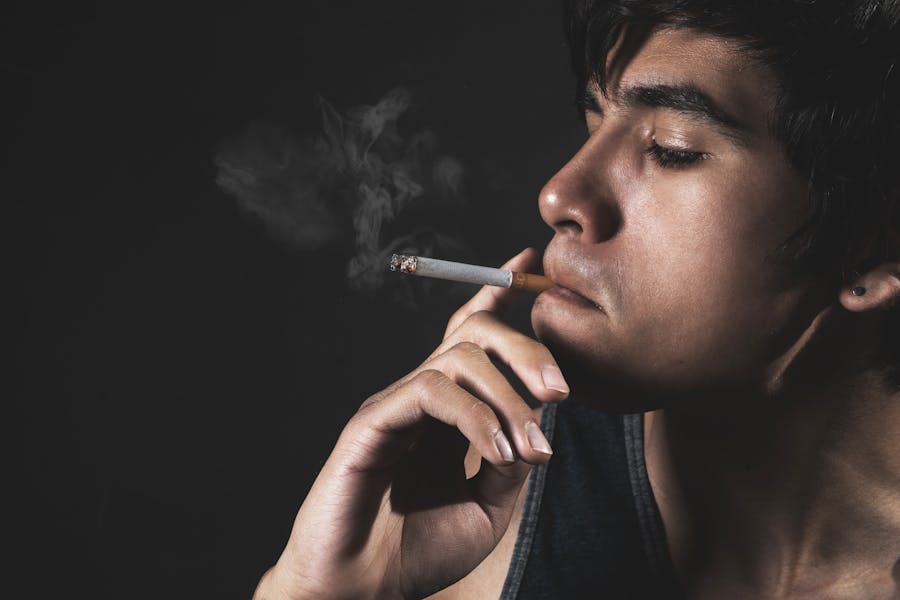The smoking laws in my state are more than just regulations—they reflect evolving public health priorities and social attitudes. From tobacco to vaping and marijuana, states have crafted diverse rules that impact everyday life. These laws determine where you can light up, who can legally purchase smoking products, and what penalties exist for violations.
While federal guidelines exist, state-level rules often vary dramatically. Some states enforce strict indoor bans and vehicle smoking laws, especially around minors, while others have more lenient approaches. Understanding these differences is essential.
Whether you’re a resident, traveler, or business owner, knowing what the smoking laws in your state are ensures you stay informed, avoid costly fines, and help promote a healthier environment.
What are the smoking laws in my state?
The smoking laws in your state vary but typically include bans on smoking in public places, age limits for tobacco/vape purchases, and penalties for smoking in cars with minors. Check local regulations for details.
What Are the Smoking Laws in My State?
When it comes to understanding the smoking laws in my state, one must first realize that no two states are entirely the same. For example, California enforces some of the strictest smoking bans in public areas, while other states like Missouri have far more lenient laws. Generally, most states prohibit smoking in workplaces, restaurants, and enclosed public areas. However, some local governments go further, banning smoking in outdoor public spaces like parks and beaches.
The laws don’t just apply to cigarettes anymore. With the rise of vaping and cannabis, states have had to revise their definitions of “smoking.” In many places, vaping is included in smoking bans, and some states also restrict or regulate marijuana use, whether recreational or medicinal. These changes reflect a broader push for public health, often backed by strong data on the dangers of secondhand smoke and aerosol exposure.
Another key element in evaluating smoking laws is age restrictions. While the federal government raised the minimum age to 21 in 2019 for tobacco products, enforcement is still state-driven. Some states go further by introducing stricter penalties for retailers who sell to minors or providing education campaigns in schools.
Taxation is another tool states use to curb smoking. Higher tobacco taxes are often paired with public service announcements, smoke-free housing laws, and quitline services. States like New York and Hawaii have used high taxation to lower smoking rates substantially.
If you’re wondering, “What are the smoking laws in my state?” you should also consider city or county-specific rules. For instance, New York City has tougher smoking regulations than many other parts of New York State. The same applies in Illinois, where Chicago enforces more stringent smoking bans than rural counties.
In summary, knowing what the smoking laws in my state mean involves examining a complex set of regulations that often vary by locality, product, and enforcement.
When Did Smoking Laws Become So Strict?
Smoking laws in the United States began tightening in the 1970s, a shift largely influenced by rising public awareness of the health risks associated with tobacco. What started as limited restrictions soon evolved into a nationwide push for cleaner air and healthier communities.
The Early Push for Regulation
The initial wave of legislation targeted indoor smoking in public spaces. Workplaces and public transportation were among the first areas to implement bans, as studies started linking tobacco use to serious health conditions. During this period, concerns about non-smokers’ rights also began to surface, prompting action from both lawmakers and advocacy groups.
The Power of Health Campaigns\
A major catalyst for change came from the U.S. Surgeon General’s reports throughout the 1980s and 1990s. These reports presented undeniable links between smoking and fatal illnesses like cancer and heart disease. As these findings gained traction, public opinion shifted, fueling support for stronger laws.
Federal vs. State Regulation
While the federal government offered baseline protections, it was often up to individual states to enforce stricter laws. Many states passed Clean Indoor Air Acts in the 1990s and early 2000s, targeting workplaces, restaurants, and schools.
Secondhand Smoke and Public Support
The discovery that secondhand smoke could harm non-smokers galvanized public sentiment. With more studies confirming these dangers, smoking laws became more comprehensive and widely accepted.
What Specific Rules Define State Smoking Laws?
State smoking laws vary, but they generally regulate when, where, and how individuals can use tobacco, vaping products, and cannabis. These laws are designed to protect public health, reduce exposure to secondhand smoke, and enforce age-related restrictions. Below are the primary categories that define smoking legislation at the state level:
- Public Area Bans
Smoking is typically prohibited in public spaces such as government buildings, schools, hospitals, and frequently in restaurants, bars, and parks. Many states have expanded these bans to include e-cigarettes. - Workplace Smoking Restrictions
Employers are often required to maintain a smoke-free environment, particularly in enclosed indoor areas. This applies to both public and private sector workplaces. - Age Limit for Purchase
All states now enforce the federal law that sets the minimum age to purchase tobacco and vaping products at 21, helping to curb youth addiction. - Vehicle Smoking Restrictions
Some states have laws banning smoking in cars when minors are present, prioritizing the health of children from secondhand smoke. - Cannabis Usage Guidelines
Where marijuana is legal, states typically restrict its use in public areas and often regulate it similarly to tobacco. - Penalties and Fines
Violations of smoking laws can result in monetary fines, warnings, or suspension of business licenses, depending on the severity and frequency of offenses.
Why Do Smoking Laws Vary From State to State?
The variation in state smoking laws boils down to cultural, political, and public health priorities. States like California and New York prioritize public health and environmental safety, leading to aggressive regulations on smoking and tobacco marketing. Meanwhile, states with strong tobacco farming industries like Kentucky may be more lenient due to economic interests.
Public opinion also plays a large role. In progressive states, constituents often support strict smoking bans and youth-targeted health campaigns. Conversely, in states with libertarian values, smoking is seen more as a personal choice and less as a public health concern. Lobbying by tobacco and vaping companies has also historically influenced how laws are crafted, though public health advocates are gaining ground.
The result is a diverse legal landscape where local customs, state budgets, and community health outcomes all shape what are the smoking laws in my state.
How Are Vaping and Marijuana Regulated in State Smoking Laws?
As the popularity of vaping and marijuana continues to rise, states have revised their smoking laws to accommodate and regulate these newer forms of smoking. While traditional tobacco laws served as the foundation, adjustments were made to address the unique challenges posed by e-cigarettes and cannabis.
Vaping Laws and Indoor Restrictions
Vaping is now widely treated like tobacco in many state laws. Most states have expanded their tobacco control regulations to include e-cigarettes, requiring age verification for purchase and often banning their use in indoor public spaces, especially near schools or hospitals. Online sales are also subject to restrictions to prevent underage access.
Marijuana Usage and Public Limits
For states that have legalized marijuana, its use is heavily regulated. Public smoking is generally prohibited, and many jurisdictions treat marijuana similarly to alcohol—permitted in private spaces but not in public. Some states have included cannabis use under their Clean Indoor Air Acts, further limiting where it can be smoked.
Medical Use and Product Warnings
Medical marijuana users may have slightly more freedom, though smoking in public buildings or on public transportation remains off-limits. Additionally, states now require clear labeling, health warnings, and ingredient disclosures on all vaping and cannabis-related products to ensure consumer safety.
Conclusion
Knowing what the smoking laws in my state are is essential for compliance, health, and public awareness. Whether you’re lighting a cigarette, using a vape, or consuming cannabis, your state likely has specific rules and penalties. These laws are continually evolving to address public health concerns and societal changes. By staying informed, you protect yourself and others while avoiding legal trouble. Don’t assume uniformity across borders—local variations matter.
FAQ’s
Can I smoke in my car with kids present?
In several states, it’s illegal to smoke in a vehicle if minors are present, with penalties ranging from warnings to hefty fines.
Are e-cigarettes banned in public places?
Yes, many states have updated smoking bans to include e-cigarettes and vaping devices, especially in indoor or shared spaces.
Do states allow marijuana smoking in public?
Even where marijuana is legal, most states strictly prohibit public cannabis smoking, treating it similarly to alcohol consumption.
How are smoking laws enforced?
Smoking laws are enforced by local police, public health departments, and sometimes through employer or housing authority regulations.
Can cities have stricter laws than their states?
Absolutely. Cities and counties can enforce more restrictive smoking laws than their state, often adding extra protections for public health.








